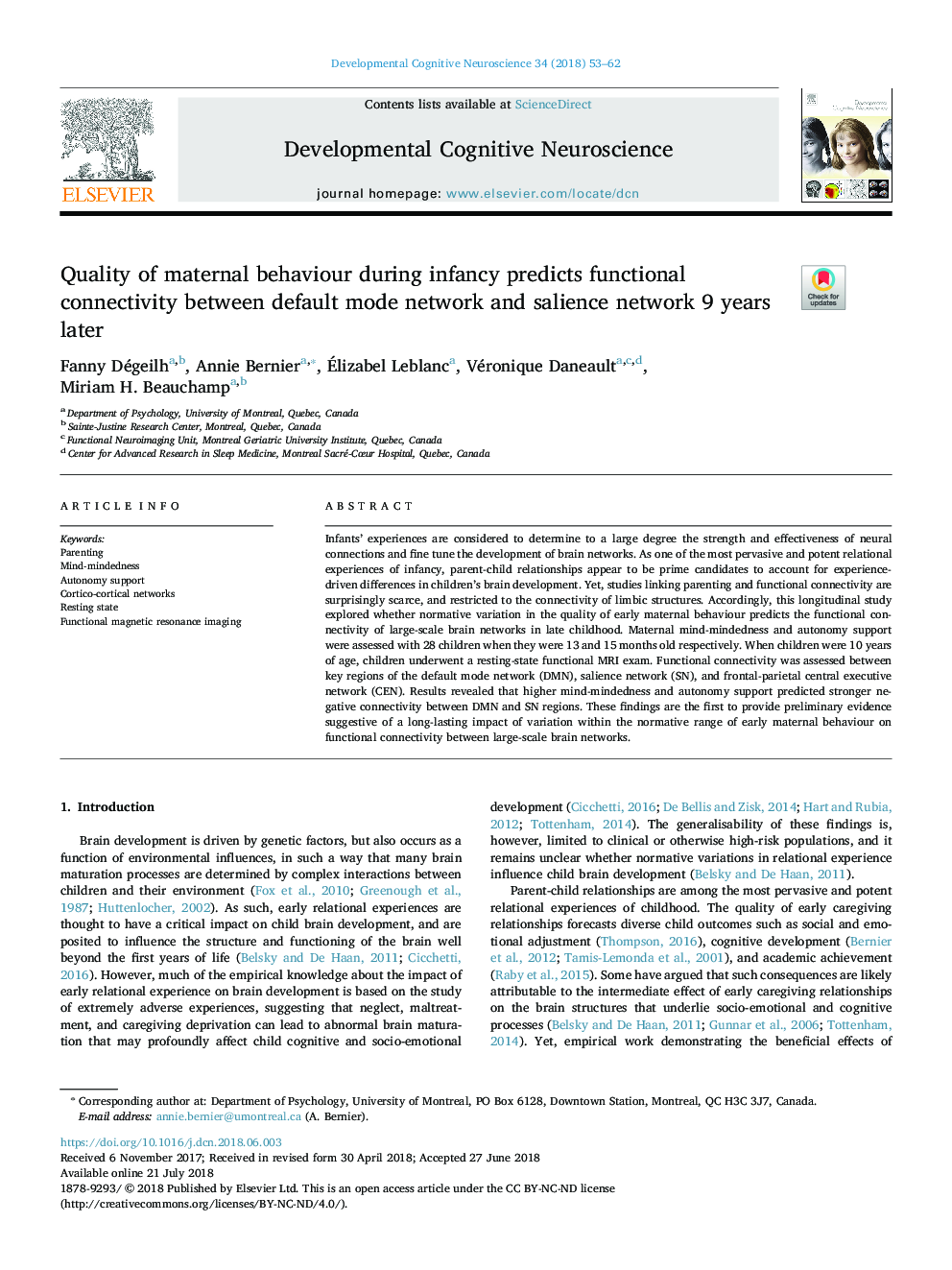| Article ID | Journal | Published Year | Pages | File Type |
|---|---|---|---|---|
| 8838207 | Developmental Cognitive Neuroscience | 2018 | 10 Pages |
Abstract
Infants' experiences are considered to determine to a large degree the strength and effectiveness of neural connections and fine tune the development of brain networks. As one of the most pervasive and potent relational experiences of infancy, parent-child relationships appear to be prime candidates to account for experience-driven differences in children's brain development. Yet, studies linking parenting and functional connectivity are surprisingly scarce, and restricted to the connectivity of limbic structures. Accordingly, this longitudinal study explored whether normative variation in the quality of early maternal behaviour predicts the functional connectivity of large-scale brain networks in late childhood. Maternal mind-mindedness and autonomy support were assessed with 28 children when they were 13 and 15 months old respectively. When children were 10 years of age, children underwent a resting-state functional MRI exam. Functional connectivity was assessed between key regions of the default mode network (DMN), salience network (SN), and frontal-parietal central executive network (CEN). Results revealed that higher mind-mindedness and autonomy support predicted stronger negative connectivity between DMN and SN regions. These findings are the first to provide preliminary evidence suggestive of a long-lasting impact of variation within the normative range of early maternal behaviour on functional connectivity between large-scale brain networks.
Related Topics
Life Sciences
Neuroscience
Behavioral Neuroscience
Authors
Fanny Dégeilh, Annie Bernier, Ãlizabel Leblanc, Véronique Daneault, Miriam H. Beauchamp,
